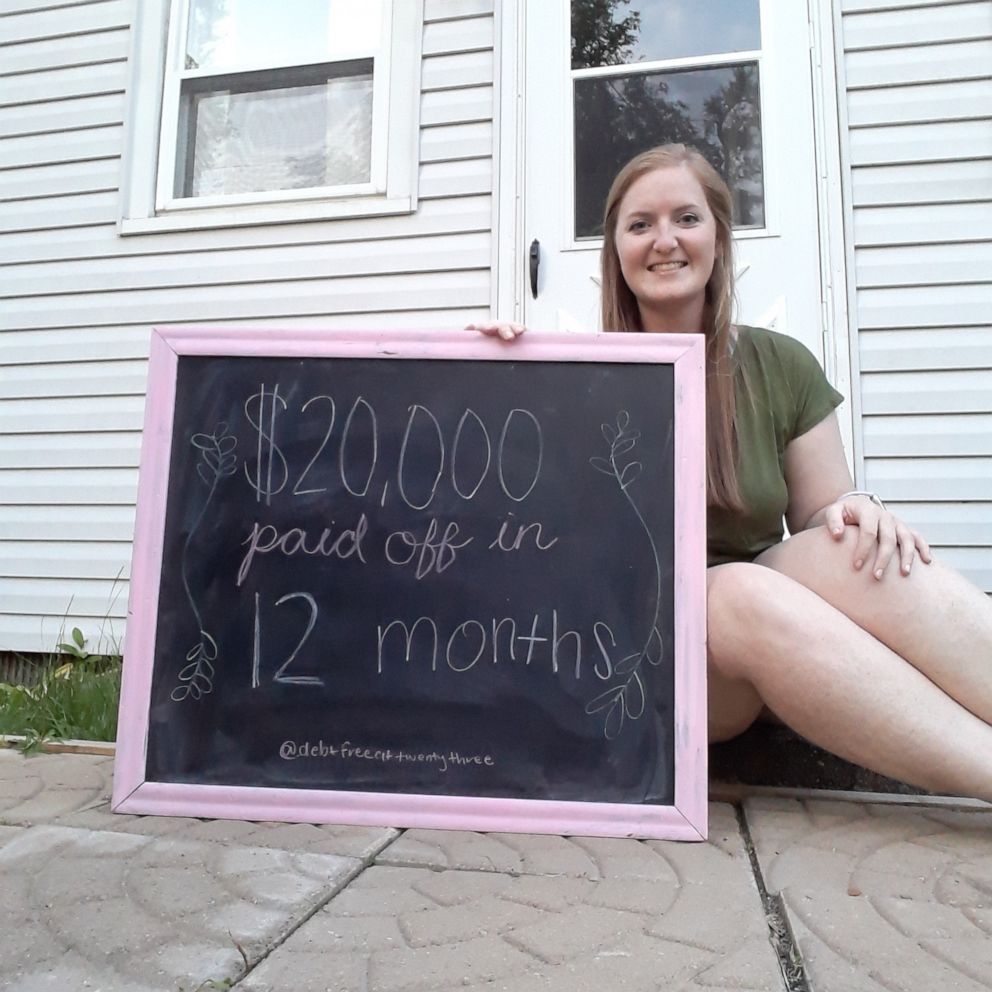'All the single ladies': 5 tips to make your money work for you
"Being solely responsible for my life, expenses and health is daunting."
Daniele Schreir has a full-time job and a side hustle as a blogger, but still her biggest anxiety is money, which she attributes to being single.
"As a single woman, especially at my age, I not only think of finances often but I worry about them often as well," Schreir, 36, of Tampa, Florida, told "Good Morning America." "Being solely responsible for my life, expenses and health is daunting."
Schreir is part of a fast-growing population in the U.S. of unmarried women. More adults in the U.S. than ever before are single, and the majority, 53%, are women, according to the U.S. Census Bureau
Schreir's blog, Fabulously Single Life, is devoted to singlehood, and money is a hot topic among her mostly female audience.
"The main concerns I hear from women are about trying to save for retirement, not only on a single income but also saving enough to insure that they are cared for," she said. "Another big concern is needing to fully understand finances, and trying to get out of debt as a single person is also more difficult."
Women who are single rely solely on their own income and carry the burden of household expenses, which often means they're left with less money for saving and investing.
They also don't experience the wealth bump that their married counterparts do. A 2005 study that tracked the net worth of individuals through their 20s, 30s and early 40s found that "married respondents experience per-person net worth increases of 77% over single respondents."
Single women, like all women, are also up against a gender pay gap that sees them earning about 80 cents for every $1 paid to a man, and a gender savings gap, in which women traditionally invest and save less than men.
With those facts in mind, here are five money tips from experts designed specifically for single women, as Beyoncé famously sang, "all the single ladies."
1. Establish an emergency fund
A top financial priority for single women is to create an emergency savings fund that has enough money to cover six months of essentials, according to Bola Sokunbi, a certified financial education instructor and the founder of Clever Girl Finance, a personal finance website for women.
While the typical recommendation for couples is a three-month emergency fund, women on their own should save double, Sokunbi said.
"Look at your life today and the things that are critical for you to live your life day to day, things like housing, food and transportation," she said. "Take that number and multiply it by six."
Sokunbi recommends keeping an emergency fund in a savings account at a different bank.
2. Get real about your budget
Keep track of all your expenses -- from bills to Starbucks treats -- diligently for one month so you have a firm grasp on how much money you're spending and where it's going, recommends Kate Ryan, a New York City-based wealth management adviser with TIAA, a financial services organization
"A budget allows you to figure out what you're spending the most on and where you can spend less to start saving for the future," she said. "I've never had a case where people were spending less than they thought."
You can track your expenses via an old-fashioned Excel doc or through an app -- whichever method ensures you'll do it, according to Ryan.
3. Stop everything and save for retirement
"I find people tend to wait for a milestone, but women need to start saving immediately," Ryan said. "Saving establishes good habits and it gives women more confidence."
Ryan used the example of compound interest to show that it matters, especially for women, to start saving now -- at whatever point they are in their lives.
"Let's look at Jane and Andy, both saving and investing for retirement. Jane starts saving at age 25 and stops at 44. Andy starts at 45 and stops at 64," she said. "Each saves $30,000 over 20 years -- $1,000 annually for the first 10 years and $2,000 annually for the second 10 years, with contributions made at year-end. Each achieves about a 6% annual investment return."
"Although Jane and Andy both save the same total amount and earn 6% return on their savings, Jane ends up with over $110,000 more in retirement savings than Andy because her money enjoys 40 years of growth from compounding, compared to up to 20 years for Andy's money," she explained.
When it comes to saving for retirement in a 401(k), Ryan recommends women contribute at least what their company will match, and more if able.
4. Protect yourself with disability insurance
Schreir carries both an accident insurance policy and a short-term disability policy because, she said, "I can't afford not to. If something happens, I am on my own."
Sokunbi said Schreir is right on track as all single women should invest in disability insurance, which pays a portion of your income if you can't work for an extended period of time because of injury or illness.
In addition to disability insurance, other types of insurance like renters, homeowners, life and auto are very important to a single women's financial planning, according to Sokunbi.
"You want insurance that protects you so if something were to happen it wouldn't throw off your financial plans," she said.
5. Do daily, annual money check-ins
Sokunbi recommends taking time at least once per year to do what she calls a "deep dive" of your finances.
That includes looking at your budget and looking at your goals and objectives, like moving or having a baby, and adjusting your financial plan accordingly, whether on your own or with a financial planner.
On top of that, Sokunbi advises her clients to carve out five minutes day to think about their money.
You don't need to understand all the fancy words you hear on TV. You just need to understand the basics -- what is investing? How risky is it? How much is it going to cost me?
"Once you have everything set up, all it takes is a five-minute check in every day to make sure bills were paid and deposits and withdrawals are correct, just checking on your accounts," she said. "It's really important to have a firm handle on finances if you're single so you don't have to worry."







